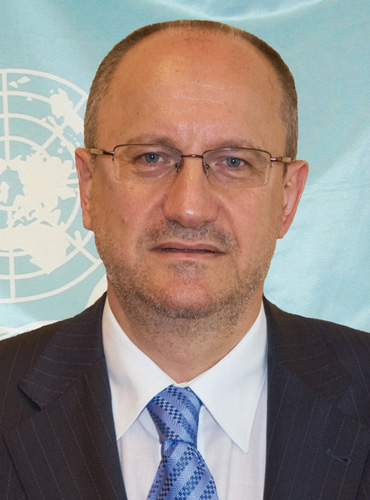 Download this article in magazine layout
Download this article in magazine layout
- Share this article
- Subscribe to our newsletter
Organic agriculture – a development opportunity
 A fundamental transformation of agriculture in the direction of sustainable agriculture lies at the very heart of achieving this goal. The outcome document of the Rio+20 conference, with its strong section on sustainable agriculture further underlines this message.
A fundamental transformation of agriculture in the direction of sustainable agriculture lies at the very heart of achieving this goal. The outcome document of the Rio+20 conference, with its strong section on sustainable agriculture further underlines this message.
UNCTAD has been active in promoting the shift towards more sustainable and inclusive forms of agriculture, including organic agriculture. Our forthcoming Trade and Environment Review 2012 will focus on the challenge of transforming agriculture to cope with climate change and assure food security.
Organic agriculture offers an impressive array of food-security, economic, environmental and health benefits. These include higher incomes, more stable and nutritious diets, higher soil fertility, reduced soil erosion, better resilience to climate extremes such as drought and heavy rainfall, greater resource efficiency, lower carbon footprints, less dependence on external inputs and reduced rural-urban migration.
Organic farmers earn more
UNCTAD research has shown that organic farmers generally earn better incomes. Revenues are higher because of rapidly growing markets, as well as frequent price and quality premiums. At the same time, on the cost side, lower cash outlays are needed for externally purchased inputs, whose prices, as seen in recent years, can be quite volatile and are generally on the rise. Ecological/organic agriculture, in contrast, relies primarily on locally available renewable resources. This shields farmers from price shocks associated with external inputs, caused for example by rising oil prices. The reliance on locally available resources also has a positive multiplier effect in local economies by creating jobs and improving incomes.
Good for food security
Organic production systems can also serve to increase yields. A joint study carried out by UNCTAD and UNEP of 114 cases in Africa showed that applying organic practices led to an average increase in yields of 116 per cent. This combination of higher net incomes and varied nutritious food means that organic agriculture is good for food security. It is also more likely to be sustainable in the long term because the shift to organic farming serves to build human, social, financial and physical capital in farming communities.
Let the good products flow
Some goods from organic production are certified, a means of assuring buyers that the production process was in line with organic production standards. Certified organic products can be traded internationally in robust markets. 80 per cent of the world’s certified organic farms are in developing countries. Moreover, developing countries account for 73 per cent of land certified for organic wild collection and beekeeping. Countless other developing-country farmers practice organic agriculture without being formally certified.
Minor differences in organic standards and certification requirements can hinder trade. Harmonisation and equivalency – implying a mutual recognition of different standards and conformity assessment systems – are a way of overcoming these differences so that markets for organic products continue to grow. Trade in organic products should be open and based on the principle of equivalency, so as to facilitate market access. For ten years, UNCTAD has been working with IFOAM – the International Federation of Organic Agriculture Movements – and FAO on reducing technical barriers to trade through harmonisation and equivalency.
Supportive policies
All of these above reasons demonstrate that organic agriculture can make a crucial contribution to inclusive and sustainable development. We should all work together to increase awareness about organic agriculture and develop supportive policies and programmes to help it spread. UNCTAD and UNEP have developed a set of Best Practices for Organic Policy. Countries should assess their current policies, remove distorting measures, include organics in research and education programmes, and support the development of organic markets domestically and abroad.
Author: Petko Draganov
Deputy Secretary-General
United Nations Conference on
Trade and Development (UNCTAD)
Geneva, Switzerland
Contact: Sophia.Twarog@unctad.org




Add a comment
Be the First to Comment